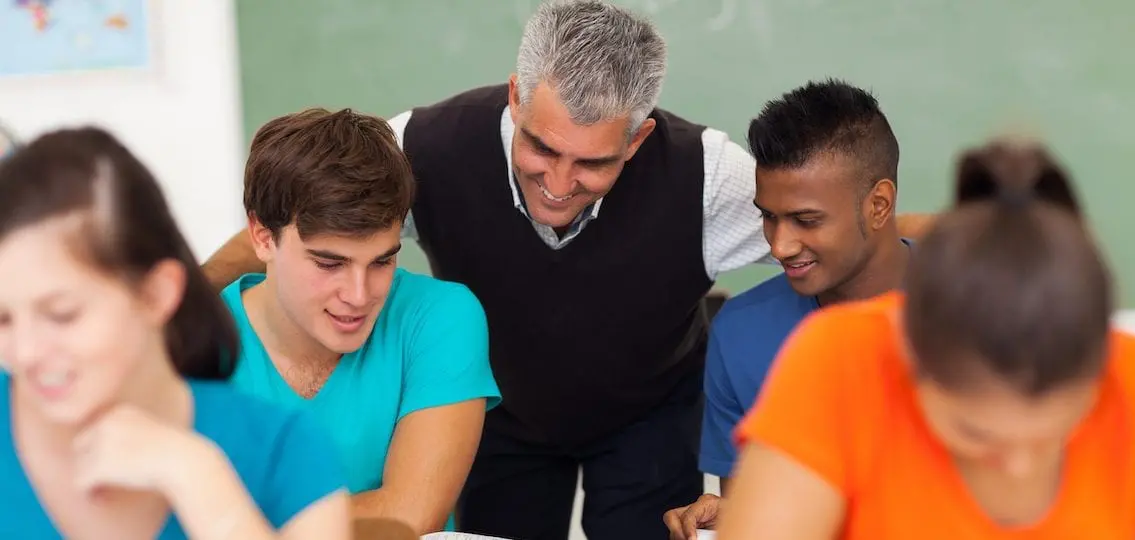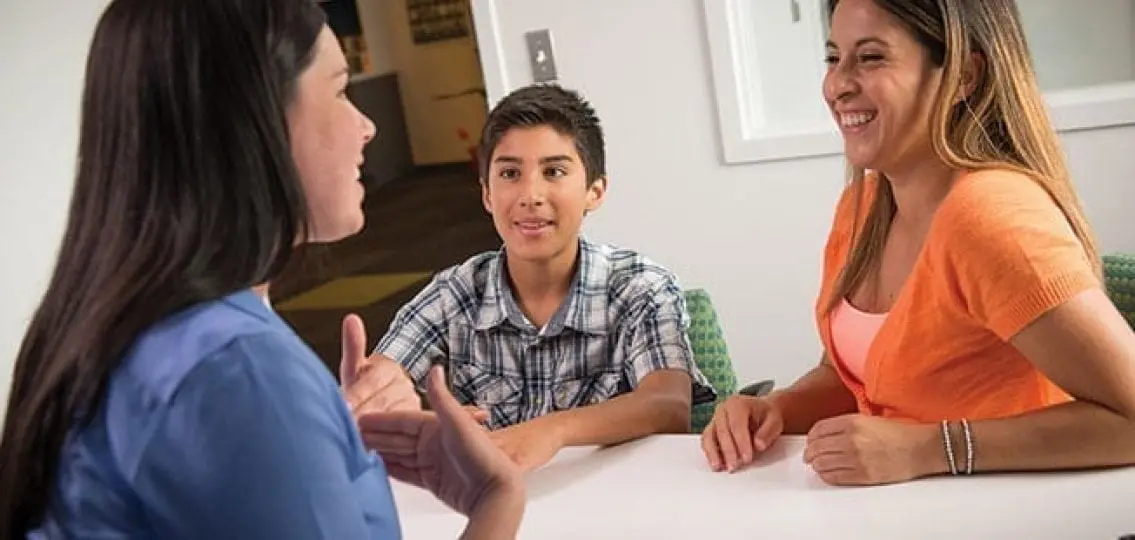In the high school where I teach, and in all the high schools in our region, parent-teacher conferences are typically no longer than five minutes. The conference schedule runs for about two hours, but each conversation between a teacher and a child’s parents lasts no longer than five minutes. This is by design.

During those five-minute conferences, a teacher will typically review what the students have been learning in that class, describe how this particular student has performed on recent assignments and assessments, and often indicate the student’s shortcomings—those things they have struggled to do well.
The Only Question You Need to Ask
There is one powerful question to ask at parent teacher-conferences in order to make the most of even the briefest of conferences. When a teacher indicates what your child may be struggling with, thank her for the information and then ask:
“How do you plan to help her with that this year?”
Once, in a conference about my own child, a teacher told me that my son’s lack of confidence in the subject was hindering his academic performance. My son had been in this teacher’s class two years in a row, and the teacher had told me the exact same thing, virtually word-for-word, in the prior year’s conference.
“Yes, I know,” I replied. “You told me the same thing last year. So now that you’ve had my son for more than a year, what do you plan to do to increase his confidence in your class, so that he can do better?”
Unfortunately, the teacher had no response ready. He didn’t appear to have thought about it before then. The question shouldn’t have floored my son’s teacher. It shouldn’t stump any skilled teacher.
Collaborate with Teachers to Help Your Teen Learn
A skilled teacher will have given the answer to this question some thought in advance, not only in preparation for the parent-teacher conference, but in preparation for working every day with your child.
An effective teacher will know what skills they’re focused on in the upcoming weeks and how that work is integrated with the content of their lessons. They will know which students in class will need extra attention to master those skills. They will have planned for a combination of whole-class instruction, group work, and individual work time when they might circulate among their students in order to check in and provide one-on-one support, differentiated for the needs of individual students. These are a teacher’s responsibilities.
Even a relatively new teacher can appreciate the question you are asking. If she hasn’t thought through the question beforehand, she can think through it with you.
Think of the parent-teacher conference—even a brief one—as a chance to pool your collective resources.
The teacher knows her subject area and knows how to teach it. You know things about your child that she may not yet have discovered. Use the parent-teacher conference as an opportunity to share that information.
Let the teacher know what has worked well for your child, and other teachers, in the past—as well as what hasn’t worked. Tell the teacher what you are seeing at home when your child works on the homework for that class, or what your kid is telling you about their experience with the class. You can also let the teacher know if there is another teacher your child is working especially well with, so that they might coordinate their efforts.

If you happen to be among the lucky few parents whose children’s teachers regale you only with praise during the parent-teacher conference, there is another important question you can ask:
“How do you plan to challenge him this year?”




